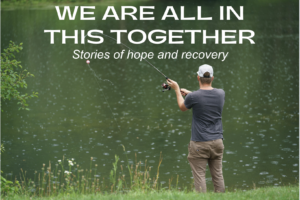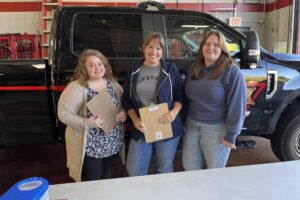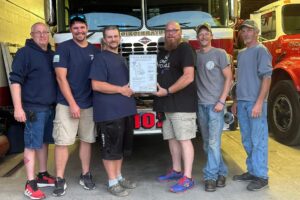Partner Spotlight: REACH: Respectful, Equitable Access to Compassionate Healthcare
“The REACH Project Inc. is a nonprofit organization with the belief that all individuals deserve respectful and equitable access to compassionate healthcare in a setting where they will not be stigmatized or judged based on drug use, homelessness, or any other issue that may cause less than adequate care in today’s healthcare environment,” according to their website.
Their most comprehensive project is REACH Medical a medical practice providing low-threshold, harm reduction-informed care, for people who use drugs. They offer a wide range of services including: Medication-Assisted Therapy (MAT), Hep C treatment, primary care, and behavioral services in a stigma-free setting.
Healing Cortland had the pleasure of speaking with Samantha Stevenson, the Director of Operations at REACH.

She shared with us more about the organization, and in speaking with her it became clear why it is such a special place. We asked Samantha:
Tell us more about REACH:
“REACH opened in 2018, and the core of everything we do and all of the services we provide is health equity, and providing equal access to good healthcare for everyone who needs it. We are essentially a primary care and outpatient SUD treatment facility. The people who typically don’t have access to good healthcare are the marginalized populations, people who use drugs, people that are in need of HIV or Hep C treatment, Narcan, and/or MAT.
There is a lot of stigma that comes with all of those service legs within healthcare. This population of people have fallen through the cracks of the systems in so many ways, that organically we have become involved in case management, outreach work, and street outreach, such as Covid-19 vaccination and testing on the streets.
We have thousands of patients that are on buprenorphine/MAT services. We are also really invested in case management and street outreach at this point.”
What does a stigma-free healthcare setting look like at REACH?
“REACH has made a huge effort to have a very diverse and inclusive staff. Our goal, that we are getting to but are not there yet, is to have a human being from every different walk of life that patients can relate to when they walk in our doors. We do a lot of internal cultural competency training, unconscious bias trainings, and we have an open forum of communication for difficult conversations.
We are a facility that embeds in our practices anti-racism policies for the patients, and we do require them to follow the rules and be respectful for our staff. We are very clear that we care deeply about our patients but they have to care about us too- at least enough to respect us. I would say we have a very well-educated, open, diverse, and inclusive staff, and that radiates through our entire physical space.”
What services are open to Cortland County residents?
“For Cortland County, all of our services are available. Many of our Cortland patients are receiving MAT services along with mental health services and primary care.
Transportation has been a major barrier for us for all of our patients. There have been a couple patients from Cortland that have such bad transportation barriers that we have been unable to provide services in the way we would prefer to- but we still keep them on our panel.”
What is different or unique about REACH from other practices? What encouragement would you have for someone who is thinking about coming to REACH for treatment, but is nervous?
“I know that REACH is different from traditional outpatient rehab facilities in the sense that we don’t mandate therapy or counseling. We don’t mandate anything- it is a totally patient driven model, and we let the patients sit in the driver’s seat and we help provide them with the services and care that they feel like they need and are ready for.
We don’t kick people out or make them fit into a box. We don’t ever kick them out for having a positive urine drug screen. We may use it as a talking point, but it is never used as punitive.
We are almost a totally Medicaid- operating medical practice which is non-existent, really.
We also have a sliding fee scale for people who are uninsured.
Anyone who is homeless or experiencing poverty can pay $1 for a full medical exam- we don’t turn anyone away.
There is no hierarchy, our doctors aren’t even called doctors; we call each other by our first names and wear jeans and yoga pants. We normalize everything- we talk about drug use, HIV and Hep C, and transactional sex- these thing are just a part of life. There’s no shaming and no stigma, we just meet people wherever they are.
All those things – There’s no wrong way of being in the eyes of REACH.”
How can clients get connected with REACH?
“Clients can call the office during office hours and can schedule appointments at (607)273-7000.
A lot of times we do have same day appointments for buprenorphine inductions. If someone is at high risk, pregnant, just released from jail, and/or is at a higher risk of overdosing, we can see those people the same day.
Clients can contact us through the chat feature on our website reachprojectinc.org/contact that is checked regularly during business hours.” For more information about REACH Medical and The REACH Project Inc., visit reachprojectinc.org.






